|
|||||||||||||||||
|
Visit The Center for Baptist Studies' Web Site at www.mercer.edu/baptiststudies |
|||||||||||||||||
|
Produced by The Center for Baptist Studies, Mercer University Walter B. Shurden, Executive Editor, The Baptist Studies Bulletin Bruce T. Gourley, Editor, The Baptist Studies Bulletin Wil Platt, Associate Editor, The Baptist Studies Bulletin |
|||||||||||||||||
|
I Believe . . . : Walter B. Shurden "Growing Down" The Baptist Soapbox: Rhonda Abbott "We Must Find a Way" History of the Baptist World Alliance: Richard V. Pierard "The Development of Non-Western Leadership in the BWA" Baptists, the Bible, and the Poor: Charles E. Poole "Careful Speech and the Poor" Special to the Bulletin: A Baptist Hymn by Dan Day "A Song of Soul Freedom" Focus on Collegiate Ministry: Wanda Kidd "Dialoguing About Collegiate Ministry" BSB Book Review: Gathering: A Theology and Spirituality of Worship in the Free Church Tradition, by Christopher J. Ellis Reviewed by E. Glenn Hinson
BSB Book Review Special:
Bless God and Take Courage: The Judson
History and Legacy, Reviewed by Mark Wilson News and Resources From the Net: Bruce Gourley
Note: To print the BSB, set your printer's left and right margins to .4 inches.
Note: You are free
to duplicate and circulate the articles in BSB or to use quotations |
|||||||||||||||||
|
I Believe |
"Growing Down" By Walter B. Shurden
that so many groups in local Baptist churches cry out for our care, for our attention, and for our love: the visitors, the new members, the unreached, the bereaved, the hospitalized, the suffering, the poor who don’t have enough, the rich who have too much, the shut-ins, the institutionalized, the gifted, the emotionally and mentally challenged, the recently divorced, the children, the youth, the college students, the newly married, and the elderly. This last group–the elderly–have gotten my ear recently and for a number of reasons. One, I have become more aware of my own aging. At sixty-eight I don’t feel old at all. I am aware, however, that the sand is dropping faster, and it does take me longer to straighten up when I stand up than it once did. While not obsessing about growing older, I spend some of my night time now wondering about how to age creatively and with at least a smidgen of Christian grace. I rarely thought about that at forty-eight, maybe not even at fifty-eight, but sixty-eight has changed my night time thoughts. And at sixty-eight one thinks about one’s own death more than one did at earlier ages. Aging gets your ear when you hear the sounds of things you never heard before. Aging causes you to do a lot of subtracting while you read the “obits.” Let’s see now, 68 from 74 is . . ., 68 from 82 is . . ., 68 from 91 is . . . . It’s called numbering your days! Second, the aging ones have gotten my attention recently because I had the opportunity to speak to the "Keenagers" at their annual banquet at my local church. The energetic and optimistic woman who leads this noble band is eighty-eight, twenty years older than I. My dear friend at the registration table was ninety-three. One of the most attractive women in the room, smart, spry, fastidiously dressed, was ninety-eight and on to every word I spoke. Eschewing an effort to “perk the old folks up” with some condescending humor, I spoke seriously about the need for some “growing down stories.” We have lots of “growing up stories.” Now we need someone to tell us how to “grow down” creatively, with human dignity and Christian grace. Would someone out there who is reading this write a book for me and others my age on How to Grow Down? Authorship should be limited to those at least over eighty! However, I was audacious enough at sixty-eight to suggest to the Keenagers that growing down stories probably should be dominated by three words: independence, dependence, and interdependence. A third reason the elderly have claimed my attention recently is that our church has lots of people in nursing homes. Seldom does our deacon of the week, reporting on Wednesday night about her or his recent weekly visitation, fail to tell us that someone in a nursing home asked for more visits from the church folk. “Ministry Teams” have become a big item in church life recently. I hope one of those “Ministry Teams” for Baptist churches includes a “Ministry Team to the Lonely Elderly.” The fourth reason for thinking about the elderly is a web site I discovered in The Christian Century called “The Center for Aging, Religion, and Spirituality.” I commend it to you at www.aging-religion-spirituality.com. I hope and I pray that Baptist Studies will go beyond issues of Baptist identity and include how Baptists minister in Jesus’ name to the Keenagers. If you and your church are on to something substantive, write us about it. We may post it in our “For Your Local Church” section for others to see.
|
||||||||||||||||
|
The Baptist Soapbox: Invited guests speak up and out on things Baptist (therefore, the views expressed in this space are not necessarily those of The Baptist Studies Bulletin, though sometimes they are). Climbing upon the Soapbox this month is Rhonda Abbott, the Associate Coordinator for Missions for the Kentucky Baptist Fellowship. Abbott previously served as campus minister at the University of Georgia.
"We Must Find a Way"By Rhonda Abbott
I was in college when I felt called to the ministry. Like many, if not most of my contemporaries in Baptist leadership, it was the Baptist Student Union that nurtured my heart and aptitude for Christian service. It was my campus minister who helped me understand that I could be a minister despite my gender. It was BSU summer missions that sponsored my first taste of what it would be like to serve God as my vocation. Now, some 15 years later, I work to facilitate others serving God and humanity. There is no question; I would not be in ministry today if not for the Baptist Student Union. However, Baptist collegiate ministry has changed since the early 90s when I was a student. Having vested my life in that work for the past 12 years, I know first-hand the pressure Baptist campus ministers face to conform to current Southern Baptist dogma. When I first entered campus ministry I was free to challenge students’ theology. By the time I left, I received a reprimand whenever I was caught presenting anything more than shallow, narrow ideas. For a time I tried to stick it out, hoping to effect change from within. It didn’t take long before my passion for collegiate ministry died because of playing the conformity game. Baptist campus ministries across the nation are staffed by outstanding, thinking ministers. However, Baptist campus ministers across the nation face growing pressure to pay homage to the Southern Baptist gods. Many stick it out because of a strong calling to collegiate ministry and a dearth of opportunity in moderate Baptist life. Some hang around until they can cash in their annuities. Others, like me, leave to serve in a less oppressive place. Those who suffer are the students. The ideas they bring with them from youth remain unchallenged by campus ministers plagued by fear, and they graduate and become adults with child-sized theologies. Those called into ministry, young men mostly, go to seminaries with presidents who tell churches to hire only men as youth ministers. Can we as moderate Baptists stand aside and let generations of college students grow up without hearing another voice? When will we realize that our movement will survive only by cultivating the next generation of leaders? We all know that college students don’t offer much in the way of supporting church budgets. We all know that students graduate and move elsewhere. What we apparently don’t know is that investing in collegiate ministry is a kingdom investment, one with implications for the future of the church. We must find a way.
|
|||||||||||||||||
| BWA |
History of the Baptist World Alliance: The Baptist World Alliance is celebrating its 100th anniversary this year. Richard V. Pierard is Stephen Phillips Professor of History, Gordon College, Wenham, Massachusetts and Professor of History, Emeritus, Indiana State University. The author of numerous books and articles, Dick is the general editor of the upcoming Baptists Together in Christ 1905-2005: A Hundred-Year History of the Baptist World Alliance. Learned and well traveled, he is an ecumenical Christian with firm Baptist convictions.
"The Development of Non-Western Leadership in the BWA"By Richard V. Pierard
The Baptist World Alliance began as a Euro-American organization. The speakers at the 1905 and 1911 Baptist World Congresses were all Westerners and non-Western areas were represented by missionaries, although missiological concerns occupied a place on the agenda. After World War I change began, albeit slowly. The 1923 Congress program contained a Chinese and Japanese speaker, and at Toronto in 1928, Tsih Ching Rau of China and Juan C. Varetto of Argentina were elected vice-presidents, and one person each from India, Burma, and Japan were named to the Executive Committee. Isamu Chiba addressed the assembly about the Japanese church, two Chinese figures about the church in their country, and Gladstone Koppele about the work among his Telugu people in India. The 1930s saw significant advance. In 1930 the First Latin American Baptist Congress took place in Rio de Janeiro, and General Secretary J. H. Rushbrooke and Executive Committee member G. W. Truett attended as representatives of the BWA. In 1931 President John MacNeill visited Baptist works in Asia, and Rushbooke made a round-the-world trip soon after. Such travels by BWA leaders became increasingly commonplace in the subsequent years, and now is a vital part of their duties. In 1934 B. A. Nag of India and Manoel Avelino de Souza of Brazil were elected vice-presidents. Speakers from non-Western areas addressed both the 1934 and 1939 Congresses and affirmed the applicability of the Gospel message to all parts of the world. From 1928 at least one Asian was named to a vice-presidential post. After World War II the internationalization of the Alliance moved ahead with great speed. From 1955 there was always at least one African and one Latin American vice-president. The Fourth Baptist Youth World Conference took place in Rio de Janeiro, Brazil in 1953, and five of the quinquennial youth conventions since then have been outside Europe and North America. An important breakthrough occurred in 1960 with the holding of the Tenth Baptist World Congress in Rio and the election of the prominent Brazilian Baptist pastor João Soren as president. In 1965 he was succeeded by William R. Tolbert, Jr., then vice-president of Liberia. From this point the BWA increasingly took on a global character. The World Congress moved from alternating between Europen and North American venues to Tokyo (1970), Seoul (1990), Buenos Aires (1995), and Melbourne (2000). The same diversity was seen among presidents: Noel Vose, Australia (1985-90); Knud Wümpelmann, Denmark (1990-95); Nilson Fanini, Brazil (1995-2000); and Billy Kim, South Korea (2000-05). The BWA constitutional revision in 1975 replaced the smaller Executive Committee with a General Council that included at least one delegate from every member union and convention, thus insuring that all of the 211 member bodies from 150+ countries were represented. The Council meets annually in various countries, and some of the resolutions adopted at these address local concerns. There are now regional fellowships in Europe, Africa, Asia, the Caribbean, and Latin America with their local headquarters and secretaries. The executive staff, which was formerly all Europeans and North Americans, has been diversified in the last two decades to include people from Germany, Trinidad, England, Australia, Liberia, and Brazil. The Women’s Department is especially active in developing non-Western leadership, and various BWA agencies hold seminars and training sessions around the world in communications, evangelism, and mission work. The BWA also has stood side-by-side with Baptists in various parts of the world who are fighting against racism and religious discrimination. It is truly a “world alliance.”
|
||||||||||||||||
|
|||||||||||||||||
|
Baptists, the Bible, and the Poor: Charles E. Poole is a Baptist minister with Lifeshare Community Ministries in Jackson, Mississippi where he delights in ministering alongside the poor. "Chuck" Poole, a provocative preacher and servant pastor, served Baptist churches for twenty-five years. Among the churches he has served are First Baptist Church, Macon, GA, First Baptist Church, Washington, DC, and Northminster Baptist Church, Jackson, MS.
"Careful Speech and the Poor"By Charles E. Poole
|
|||||||||||||||||
| Hymn |
Dr. Dan Day,
pastor of First Baptist Church in Raleigh, NC,
O God of Eden’s garden, who grants thy creatures choice, Whose way is not coercion, who gives dissenters voice, Remind thy fearful people, concerned for unity: We find our deepest union when each one’s soul is free.
O God of Red Sea waters, whose will is liberty, Who moves against oppression and strikes down tyranny, Remind thy startled people, by world events made numb: There is no final kingdom until thy kingdom come.
O Christ of Calv-ry’s mountain, who died to set us free, Who sought no earthly gavel, but rules from on a tree, Remind thy challenged people, by many faiths o’errun: The truth of thy great gospel shall stand when hist-ry’s done.
O Pentecostal Spirit, whose winds no creed can tame, Best teacher of our scripture, whose errand is our aim, Remind thy faithful people of vows we
cannot bend: © 2005 Dan Day |
||||||||||||||||
|
Focus on Collegiate
Ministry: As the moderate Baptist movement
continues to grow and expand, emphasis on collegiate ministry is slowly taking
shape at a time when traditional Baptist Student Union/Baptist Campus Ministry
models are facing unprecedented challenges. This series, featuring writers who
know Baptist collegiate ministry, focuses on the future of moderate Baptist
collegiate ministry. This month's contributor is Dr. Wanda Kidd, Baptist
Campus Minister at Western Carolina University, North Carolina. "Dialoguing About Collegiate Ministry" By Wanda Kidd
As a group of campus ministers sat around a table in Connell Student Center at Mercer University to talk about the “Baptistness” of campus ministry, I thought of that story. We had been invited by The Center for Baptist Studies to talk about the future of campus ministry as it is relates to Baptist foundational issues. There were people there from four southeastern states with a variety of opinions. We chased some rabbits and did some looking backwards. We talked about how things have changed dramatically in Baptist life in the past twenty-five years. We have seen politics overshadow ministry, and cooperation sacrificed to antagonistic competition. As we lost our innocence as a denomination, the world watched and was not impressed. There seemed to be an agreement that it is not an optimistic time to be doing ministry with students in the name of Baptists. Add to that reality, the students with whom we work, have morphed into people who have been told that their happiness is their life’s goal. They come onto our campuses self-absorbed and biblically ignorant, yet thirsting for something that they do not even have words to express. We traveled to that meeting because we believed that the fundamentals of historical Baptist beliefs empower us to minister to a vast and virtually untouched population which has been pampered, exploited, maligned and ignored as people of substance.
Ironically, as the stories unfolded throughout the afternoon, our optimism
grew about working with students as Baptists. It grew because it was
reconfirmed to us and in us, that while these young people may not know what
is missing in their lives, we campus ministers believe that we can help them
find truth, meaning and freedom through a relationship with Christ. In reality
we must open our eyes and see that Baptist campus ministry is not a luxury; it
is a necessity if we are to lead and equip this generation to serve Christ. |
|||||||||||||||||
| Book Review |
BSB Book Review: BSB presents a review of Gathering: A Theology and Spirituality of Worship in the Free Church Tradition, by Christopher J. Ellis. London: SCM Press, 2004. 327 pp. E. Glenn Hinson, Professor Emeritus of Baptist Theological Seminary in Richmond, Senior Professor of Church History and Spirituality at Baptist Seminary of Kentucky, Visiting Professor of Church History at Lexington Theological Seminary, and Adjunct Professor of Church History at Louisville Presbyterian Seminary is our reviewer.
In this trailblazing study in liturgical theology Christopher J. Ellis, Principal of Bristol Baptist College in England, lays bare the very heart not only of the worship but of the very essence of the Free Church, specifically in the Baptist tradition. Orienting his study along lines laid down by the great Orthodox theologian Alexander Schmemann, he demonstrates effectively that it is quite possible to discover the heart and soul of a tradition without the aid of precise and formal liturgical documents. Like Schmemann, he is careful to establish the liturgical facts from historical study, to analyze those facts, and to release “the inherent theological meaning from the witness of the liturgical epiphany itself.” But he goes beyond his mentor in placing “the exposition of the faith of the worshipping community under a broader theological scrutiny.” What is “free” about Free Church worship? According to Principal Ellis, “freedom of local congregations to order their own gatherings for worship,” “freedom of spontaneity which is open to the extempore guidance of the Holy Spirit,” and “freedom of a particular worshipping community to respond to the reading and preaching of Scripture addressed to them as God’s living Word.” The author has confirmed in a careful survey the accuracy of Ernest Payne’s conclusion that from the 17th century until about 1950 Baptist worship in England consisted chiefly of “scripture, prayer and sermon, interspersed with hymns.” While not “liturgical,” Baptists did pay some attention to the “patterning of the services” with an eye always on faithfulness to Scripture as they strove for simplicity and freedom. Attentive to ecumenical concern for ordo in worship, Ellis posits the “soul” of Baptist worship in dedication of much of a service to explanation and application of Scripture, free and devotionally intense prayer, extended singing which enables a congregation to offer praise and prayer in unity, evangelistic preaching and prayers calling on God to act in the world and the lives of the congregation. The emphasis on spontaneity in Baptist worship renders it difficult to document particulars, but Ellis has done a superb job of tracking down what can be known about the spirituality of prayer, preaching, congregational singing, the Lord’s Supper, and baptism. Ellis is sensitive throughout this fine book to its ecumenical implications. He finds a remarkable congruence between Roman Catholic scholar Kevin Irwin’s typology of worship and the three principles of Baptist worship: anamnesis with attention to Scripture, epiclesis with concern for devotion and the Spirit, and ecclesiology with Baptist understanding of Church as local congregation. He adds, however, a fourth, eschatological, the church seen as a missionary congregation. The Sunday gathering is a gathering of disciples around the Word in openness to God for fellowship and sharing as the messianic community under the Lordship of Christ. What, then, is Free Church worship? “Christian worship is a gathering of the Church in the name of Jesus Christ and in the power of the Holy Spirit in order to meet God through Scripture, prayer, proclamation and sacraments and to seek his Kingdom.” Ellis concludes that free worship has an ecumenical gift to contribute to other models of liturgical theology–institutional, sacramental, and proclamation–namely, a discipleship model. This stimulating, well-documented study will doubtless capture the attention of liturgical scholars in various traditions, but it especially merits careful reading by Baptists and others in the Free Church tradition who would like to gain new insight into their own gathering. Although focused on English Baptists, it contains critical insights for Baptists everywhere. |
||||||||||||||||
| Book Review Special |
BSB Book Review Special: BSB presents a review of Bless God and Take Courage: The Judson History and Legacy, by Rosalie Hall Hunt. Valley Forge, Penn.: Judson Press, 2005. Mark Wilson, a graduate of Mercer University's McAfee School of Theology, is a doctoral candidate in history at Auburn University. In July he will begin employment at Judson College in Marion, Alabama as the director of the college's new Office of Faith-Based Service and Learning.
Hunt, a retired Baptist missionary, does not present a critical biography of the Judson clan but delivers a detailed narrative from published and unpublished primary sources that presents her subjects as faithful and bold pioneers of Christianity’s global mission in the nineteenth century. The Judson story certainly does not lack adventure or suspense. Adoniram and Ann departed from the United States in 1812 as Congregationalists but during the four-month journey over the ocean accepted Baptist convictions and subsequently received baptism by immersion after arriving in Calcutta. Adoniram’s work in Burma was the first overseas mission for American Baptists, one filled with exemplary success. Judson is best known for his translation of the Bible into the Burmese language and his authorship of a massive Burmese-English dictionary. Rightly so, Hunt gives much of the credit for Adoniram’s success to his three wives, and she constructs the narrative around these intriguing love relationships. Ann Hasseltine, herself an able translator of Scripture, stood valiantly by Adoniram’s side throughout his brutal twenty-one-month imprisonment during the Anglo-Burmese War and is credited with saving his life before she died from smallpox that same year. Sarah Hall, a missionary widow, married Adoniram in 1834, and together they bore eight children before she was struck down dysentery. His last wife, Emily Chubbock, a well-known literary figure who wrote under the pen name “Fanny Forester,” outlived Adoniram, who died in 1850. To experience the adventurous Judson missionary journey and witness the “footprints” of the famous family’s legacy in Burma, Hunt traveled thousands of miles retracing Judson’s steps in the East. The chapters devoted to Hunt’s mission act as a travel narrative of her journey and are as exciting as the Judson biography itself. Of particular note are the photographs (one per chapter) that accompany the book’s thirty-five chapters. Readers have a chance to view, for example, the earliest known portrait of Adoniram, the grave of Ann, and a prisoner’s sketch of Let Ma Yoon prison where Adoniram was held captive. An obvious labor of love, Hunt’s book is a gift to Baptists interested in the history of missions and a story that never gets old. |
||||||||||||||||
| Resources |
News and Resources from the Net
The Baptist History and Heritage Society produces "Baptist History and News," an email newsletter featuring information about annual meetings of the BH&HS, Baptist history news, and resources for teaching Baptist traditions. You may subscribe to "Baptist History and News" by emailing Charles Deweese at cdeweese@TNBaptist.org.
The Southern Baptist Historical Library and Archives produces "Baptist Echoes," an email newsletter which provides "news and updates" regarding the holdings of the Archives, resources for local churches, notes on "new books of interest," and a listing of "upcoming events" in the larger world of Baptist history. You may subscribe to "Baptist Echoes" and read the online version by clicking here.
Finally, although not available via email subscription, The Heritage and Identity Commission of the Baptist World Alliance publishes periodical News and Updates, including information on upcoming BWA-related Baptist history events and books.
Baptist History and Heritage Journal, Winter 2005, Now Online – Articles from the latest edition of the BH&HS Journal are now online. The online edition of the Journal is managed by a third-party website, and includes articles from Spring 1999 to the present.
|
||||||||||||||||
|
|||||||||||||||||
|
Note |
Dates to Note
June 2-4,
Baptist History and Heritage Society
Annual Meeting.
Samford University, Birmingham, Alabama. Theme: "Women in Baptist
History." June 22-25, The Gathering of Baptists and Others Interested in Spirituality, Mars Hill College, Mars Hill, NC. Keynote Speaker: Bill Clemmons. Theme: Centered in Christ, a Contemplative Way. Sponsored by Advent Spirituality Center. For information: 828-206-0383 or email: info@adventcenter.org
June 30 - July 1, CBF National General Assembly. Gaylord Texan Resort and Convention Center, Grapevine, TX.
September 8, "Hot Topics in Church and State Today: A Morning with Brent Walker," McAfee School of Theology, Atlanta, GA. Co-sponsored by McAfee School of Theology and The Center for Baptist Studies. Click here for more information, including the Program.
September 18-20, The Mercer Preaching Consultation '05, The King and Prince Hotel St. Simons Island, GA. Co-sponsored by McAfee School of Theology and The Center for Baptist Studies. The Cost is $50 Per Person. Click here for more information, including the Program.
July 12-15, 2006, International Conference on Baptist Studies IV, Acadia University, Wolfville, Nova Scotia, Canada. The Fourth International Conference on Baptist Studies will help to mark the centennial celebrations of the Convention of Atlantic Baptist Churches. The theme is "Baptists and Mission," which includes home and foreign missions, evangelism, and social concern. For more information, contact Professor D. W. Bebbington, Department of History, University of Stirling, Stirling FK9 4TB, Scotland, United Kingdom (e-mail: d.w.bebbington@stir.ac.uk).
For a full calendar of Baptist events, visit the
Online Baptist Community Calendar. |
||||||||||||||||
|
|
BAPTIST MYTHS and the Death of Pope John Paul II The two pamphlets noted above are from a series of eleven pamphlets that address negative perceptions held towards Baptists in popular American culture. The "Anti-Ecumenical" and "Anti-Catholic" myths are particularly timely in light of the recent death of Pope John Paul II.
Individual pamphlets and the larger pamphlet series are suitable for individual study, church classes, and academic courses. They are jointly published by the Baptist History and Heritage Society, The Center for Baptist Studies of Mercer University, and the Whitsitt Baptist Heritage Society. Editor: Doug Weaver; Associate Editors: Charles W. Deweese & Walter B. Shurden. |
||||||||||||||||
|
|
|
||||||||||||||||
|
|
If you do not wish to receive BSB any longer, please Click Here to unsubscribe. |
||||||||||||||||

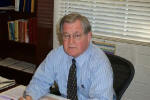 I believe . . .
I believe . . .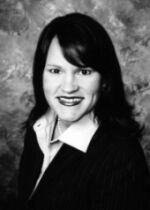
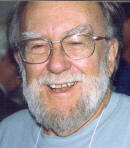
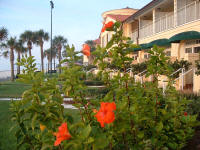

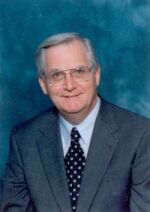 “A SONG OF SOUL FREEDOM”
“A SONG OF SOUL FREEDOM” When my children were young
adolescents, we made a trip out West. We visited a community museum in
Deadwood, South Dakota filled with local memorabilia. One of the last exhibits
was a library table with various items displayed under glass. The one that
caught my attention, as well as that of my daughter, was a pencil drawing of Jesus with
closed eyes, wearing a crown of thorns, with red paint dabbed around His brow
and down the sides of His face. This drawing was in a modest black diploma
frame. Tucked in the corner was an aged piece of onionskin paper curled up
with the words, “Look at this and the eyes will open.” My daughter and I
silently stared at it for a moment and then walked away. I had my arm around
her shoulder and I looked her in the eye and said in a rather jaded tone, “I
did not see the eyes open, did you?” My twelve year old daughter looked back
at me and said, “Maybe it wasn’t His eyes that were supposed to open.”
When my children were young
adolescents, we made a trip out West. We visited a community museum in
Deadwood, South Dakota filled with local memorabilia. One of the last exhibits
was a library table with various items displayed under glass. The one that
caught my attention, as well as that of my daughter, was a pencil drawing of Jesus with
closed eyes, wearing a crown of thorns, with red paint dabbed around His brow
and down the sides of His face. This drawing was in a modest black diploma
frame. Tucked in the corner was an aged piece of onionskin paper curled up
with the words, “Look at this and the eyes will open.” My daughter and I
silently stared at it for a moment and then walked away. I had my arm around
her shoulder and I looked her in the eye and said in a rather jaded tone, “I
did not see the eyes open, did you?” My twelve year old daughter looked back
at me and said, “Maybe it wasn’t His eyes that were supposed to open.”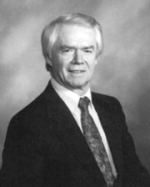
 In 1812 the first American
foreign missionaries set sail from Massachusetts to India and among this small
group of adventurous ambassadors were newly-wedded Adoniram and Ann Hasseltine
Judson. In Bless God and Take Courage, Rosalie Hall Hunt offers a
unique and comprehensive look at the extraordinary missionary journey that
brought lasting fame to the Judson name. Hunt’s account complements and
updates Courtney Anderson’s To the Golden Shore (1956) and Joan J.
Brumberg’s Mission for Life (1980) by devoting a significant portion of
the book's 400 pages to the Judson legacy found in the lives of Adoniram’s descendants and the Judson monuments still standing in his Burmese
mission field (present day Myanmar).
In 1812 the first American
foreign missionaries set sail from Massachusetts to India and among this small
group of adventurous ambassadors were newly-wedded Adoniram and Ann Hasseltine
Judson. In Bless God and Take Courage, Rosalie Hall Hunt offers a
unique and comprehensive look at the extraordinary missionary journey that
brought lasting fame to the Judson name. Hunt’s account complements and
updates Courtney Anderson’s To the Golden Shore (1956) and Joan J.
Brumberg’s Mission for Life (1980) by devoting a significant portion of
the book's 400 pages to the Judson legacy found in the lives of Adoniram’s descendants and the Judson monuments still standing in his Burmese
mission field (present day Myanmar).  Baptist History
News –
If you are interested in keeping up with current activities in Baptist
History, the BSB recommends two email newsletters: "Baptist History and
News" and "Baptist Echoes."
Baptist History
News –
If you are interested in keeping up with current activities in Baptist
History, the BSB recommends two email newsletters: "Baptist History and
News" and "Baptist Echoes."